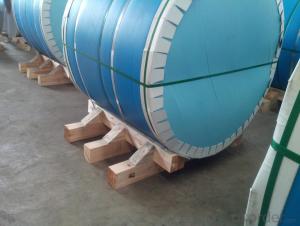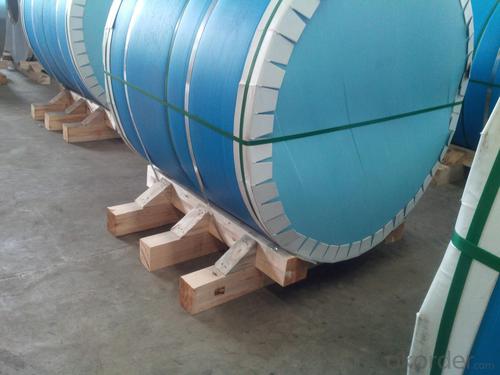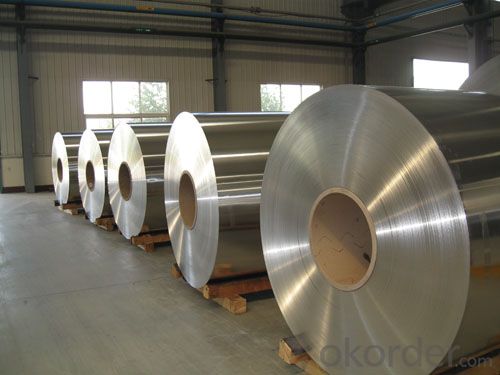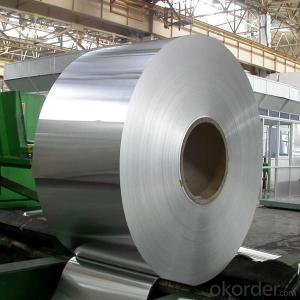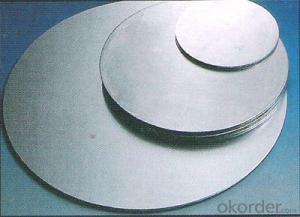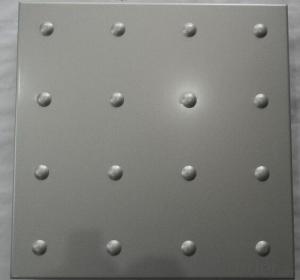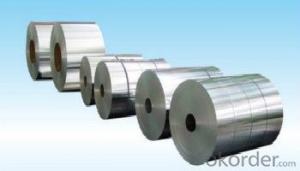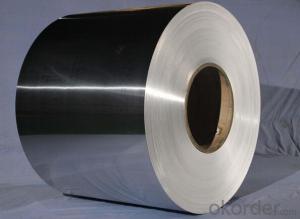Audioque Hdc3 High Quality DC Mill Finished Aluminum Coil
- Loading Port:
- Shanghai
- Payment Terms:
- TT OR LC
- Min Order Qty:
- 5 m.t.
- Supply Capability:
- 10000 m.t./month
OKorder Service Pledge
OKorder Financial Service
You Might Also Like
Specification
1. Specification of DC Mill Finished Aluminum Coil with High Quality
Material | Alloy Aluminum 6063,6061,6005 or customer nominated |
Temper | T3, T4, T5, T6 |
Surface | Anodize, electrophoresis, powder coating, PVDF coating, wood grain painting, matted, etc. |
Colour | Any colour based on Standard Germany RAL Mark |
Length | Coating 6.5 meters, Anodizing 6.5 meters, Mill finish 5 meters |
Press Machine | 500-4000 tons all together 64 press lines. |
Fabrication | 1. Windows and doors; 2. Drilling; 3. Bending; 4. Cutting; 5. etc. |
Certificate | ISO 9001 |
Moulding | 1. Using our moulds, no fee; |
2. Using customer drawing, opening mould, usually about 10~50 tons then the moulding can be refunded. | |
3. Mould cost is negotiable base on the order quantity | |
Capability | Annual output 100,000 tons |
2. Application of DC Mill Finished Aluminum Coil with High Quality
(1).Interior: wall cladding, ceilings, bathrooms, kitchens and balconies, shutters, doors...
(2).Exterior: wall cladding, facades, roofing, canopies, tunnels,column covers , renovations...
(3).Advertisement: display platforms, signboards, fascia, shop fronts...
3. Feature of DC Mill Finished Aluminum Coil with High Quality
*Such coil is specially designed to replace aluminum ingot, due to the high export tax of aluminum ingot, the coil has better price than ingot.
*This type of coil can fit customer's remelting furnace just like ingot, no need to make any change to the production line that was previously used for ingot. The standard coil size and weight is very suitable for the feed gate of furnace.
*This type of coil causes less material wastage than ingot when remelted.
*Our coil is made directly from ore, no need to go though the ingot making process, quality is much better than other suppliers who use ingot scrap to make coil.
Be free from Oil Stain, Dent, Inclusion, Scratches, Stain, Oxide Dicoloration, Breaks, Corrosion, Roll Marks, Dirt Streaks and other defect which will interfere with use
4. Certificate:
SGS and ROHS(if client request, paid by client), MTC(plant provided), Certificate of Origin(FORM A, FORM E, CO), Bureau Veritas and SGS (if client request, paid by client), CIQS certificate
5. Image of DC Mill Finished Aluminum Coil with High Quality
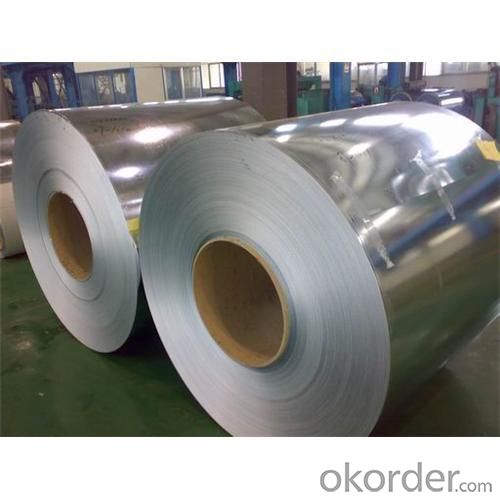
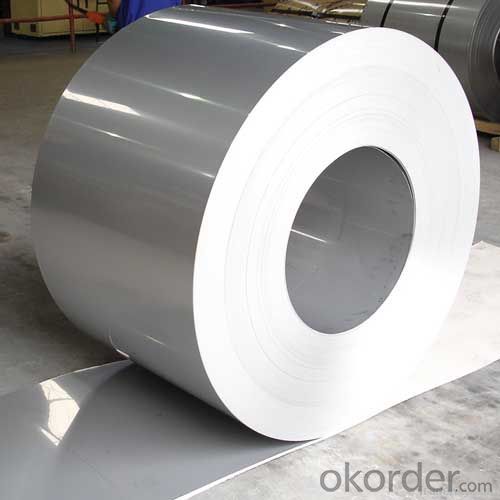
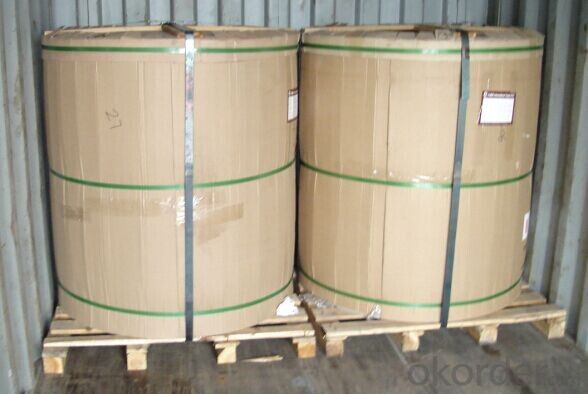
6. Package and shipping of DC Mill Finished Aluminum Coil with High Quality
eye to wall
eye to the wall
with wood pallet (wooded case also available)
7. FAQ
1) What is the delivery time?
Dpends on actual order, around 20 to 35 days
2)What is the QC system:
We have QC staff of 20 persons and advanced equipment, each production is with MTC traced from Aluminum ingot lot.
3) What market do you mainly sell to?
Australia, America, Asia, Middle East, Western Europe, Africa etc
- Q: Can aluminum coils be used in the production of heat exchanger fins?
- Yes, aluminum coils can be used in the production of heat exchanger fins. Aluminum is a popular choice for heat exchanger fins due to its high thermal conductivity, lightweight nature, and corrosion resistance. These properties make it an ideal material for transferring heat efficiently while also ensuring durability and longevity. Aluminum coils can be easily formed into intricate fin shapes, maximizing the surface area for heat exchange. Additionally, aluminum is readily available and cost-effective, making it a preferred choice for heat exchanger fin production in various industries such as HVAC, automotive, and refrigeration.
- Q: What is the maximum width of aluminum coils?
- The maximum width of aluminum coils can vary depending on the specific manufacturer and application, but it typically ranges from 60 inches to 96 inches.
- Q: What are the best rust-proof coils? Please tell me the model and manufacturer in Shangdong. Thank you.
- 3003 aluminum coil, AL-Mn series alloy, is the most widely used rust-proof aluminum with the density being 2.73. It is applicable to insulation projects such as pipe insulation, packaging, machine parts, refrigerator, air conditioning and ventilation pipes and other wet environment.
- Q: This question asks for methods to check the quality of aluminum coils.
- <p>To inspect aluminum coils for quality, follow these steps: Visually inspect for any surface defects like scratches, dents, or discoloration. Measure the thickness and width to ensure they meet specifications. Check the hardness and tensile strength using appropriate testing equipment. Examine the coil's flatness and straightness to avoid issues in further processing. Assess the surface roughness and cleanliness, as these can affect the coil's performance. Conduct a chemical composition analysis to confirm the alloy type and purity. Perform a magnetic particle inspection or ultrasonic testing to detect any internal defects. Finally, ensure the coil meets the required mechanical properties and specifications as per industry standards.</p>
- Q: What are the potential applications of coil-annealed aluminum coils?
- Coil-annealed aluminum coils have a wide range of potential applications in various industries. One potential application is in the automotive industry. Coil-annealed aluminum coils can be used to manufacture lightweight parts and components for vehicles. The lightweight nature of aluminum makes it an ideal material for improving fuel efficiency and reducing emissions. These coils can be used to produce body panels, chassis components, and structural parts in automobiles. Another potential application is in the construction industry. Coil-annealed aluminum coils can be used to manufacture roofing, siding, and wall cladding materials. The corrosion-resistant properties of aluminum make it a suitable choice for outdoor applications where durability is important. Additionally, the lightweight nature of aluminum makes it easier to handle and install, reducing labor and transportation costs. Coil-annealed aluminum coils can also find applications in the packaging industry. Aluminum is a great choice for food and beverage packaging due to its non-toxic, odorless, and impermeable qualities. These coils can be used to produce cans, foil wraps, and pouches, providing a safe and hygienic packaging solution. Furthermore, coil-annealed aluminum coils can be used in the electrical and electronics industry. Aluminum has excellent electrical conductivity, making it suitable for power transmission lines, electrical components, and heat sinks for electronic devices. Its lightweight nature also makes it easier to handle and install in various electrical applications. Overall, the potential applications of coil-annealed aluminum coils are diverse and span across several industries. From automotive to construction, packaging to electrical, the versatility, durability, and lightweight properties of aluminum make it an excellent choice for various manufacturing needs.
- Q: How to purchase PE polyester coated aluminum sheet and PVDF fluorocarbon coated aluminum coil?
- Both belong to color coated aluminum sheet and coil. Customers can purchase ordinary aluminum sheet or coil, and then go to special coating company to add PE polyester coating or PVDF fluorocarbon coating. The color is bright and quality is also very good. PE polyester coated aluminum and PVDF fluorocarbon coated aluminum coil has a wide range of usages: construction industry (aluminum-plastic panel, aluminum honeycomb, roof corrugated sheet, fireproof veneer, aluminum ceiling, shutter, rolling shutter door, garage door, awning, water gutter), electronic appliances (computer chassis, computer panel), lighting, furniture, solar reflector, air conditioning duct and the like. At present it is still applied in many areas including electronic appliance, instrument, lighting, packaging and house decoration.
- Q: Are there any restrictions on the coil thickness of aluminum coils?
- Aluminum coils usually have restrictions on their thickness. The specific restrictions vary depending on the intended use and industry standards. Generally, the thickness of aluminum coils is limited by the capabilities of the manufacturing equipment and the desired end product. Applications that require flexibility, such as foils or flexible packaging materials, often prefer thinner coils. Conversely, industries like construction or automotive, where strength and durability are crucial, commonly use thicker coils. Availability and cost of raw materials may also limit the thickness of aluminum coils. Manufacturers must adhere to these restrictions to guarantee the quality and performance of the final product.
- Q: Can aluminum coils be used for gutter systems?
- Yes, aluminum coils can be used for gutter systems. Aluminum is a popular choice for gutters due to its lightweight nature, durability, and resistance to rust and corrosion. It is also easy to shape and install, making it a suitable material for gutter systems.
- Q: How are aluminum coils protected against moisture during storage?
- Aluminum coils are typically protected against moisture during storage by being wrapped in a moisture-proof material, such as plastic or a moisture barrier film. Additionally, they are often stored in a dry and controlled environment to prevent any moisture absorption.
- Q: This question asks about the impact of aluminum coils on food quality, considering possible effects on taste, safety, and preservation.
- <p>Aluminum coils, when used in cooking or food packaging, can potentially affect the quality of food. If aluminum leaches into the food, it may alter the taste and could pose health risks due to aluminum's neurotoxic properties. However, modern food-grade aluminum coils are coated or anodized to prevent such leaching, ensuring food safety. They are also used in heat transfer for cooking, which can improve the efficiency and evenness of cooking, thus enhancing food quality. It's crucial to use high-quality, food-safe aluminum coils to avoid any negative impact on food quality and safety.</p>
Send your message to us
Audioque Hdc3 High Quality DC Mill Finished Aluminum Coil
- Loading Port:
- Shanghai
- Payment Terms:
- TT OR LC
- Min Order Qty:
- 5 m.t.
- Supply Capability:
- 10000 m.t./month
OKorder Service Pledge
OKorder Financial Service
Similar products
Hot products
Hot Searches
Related keywords
